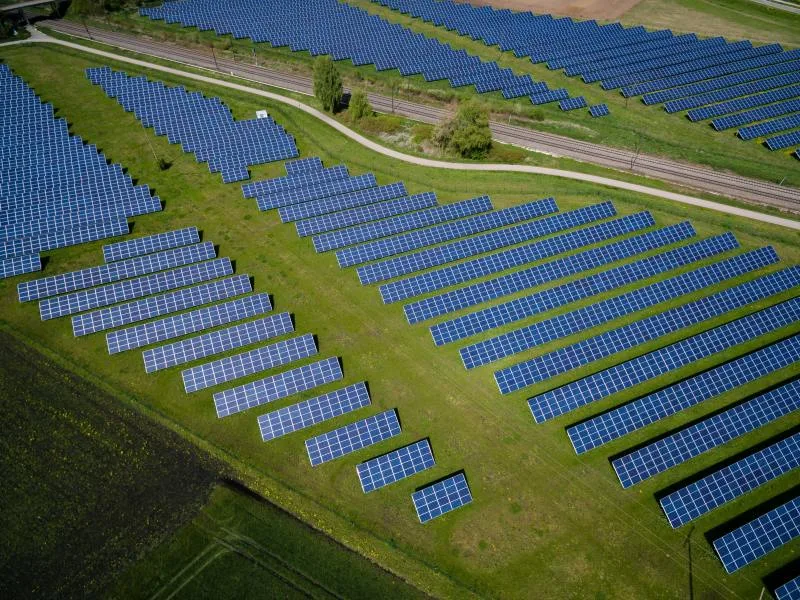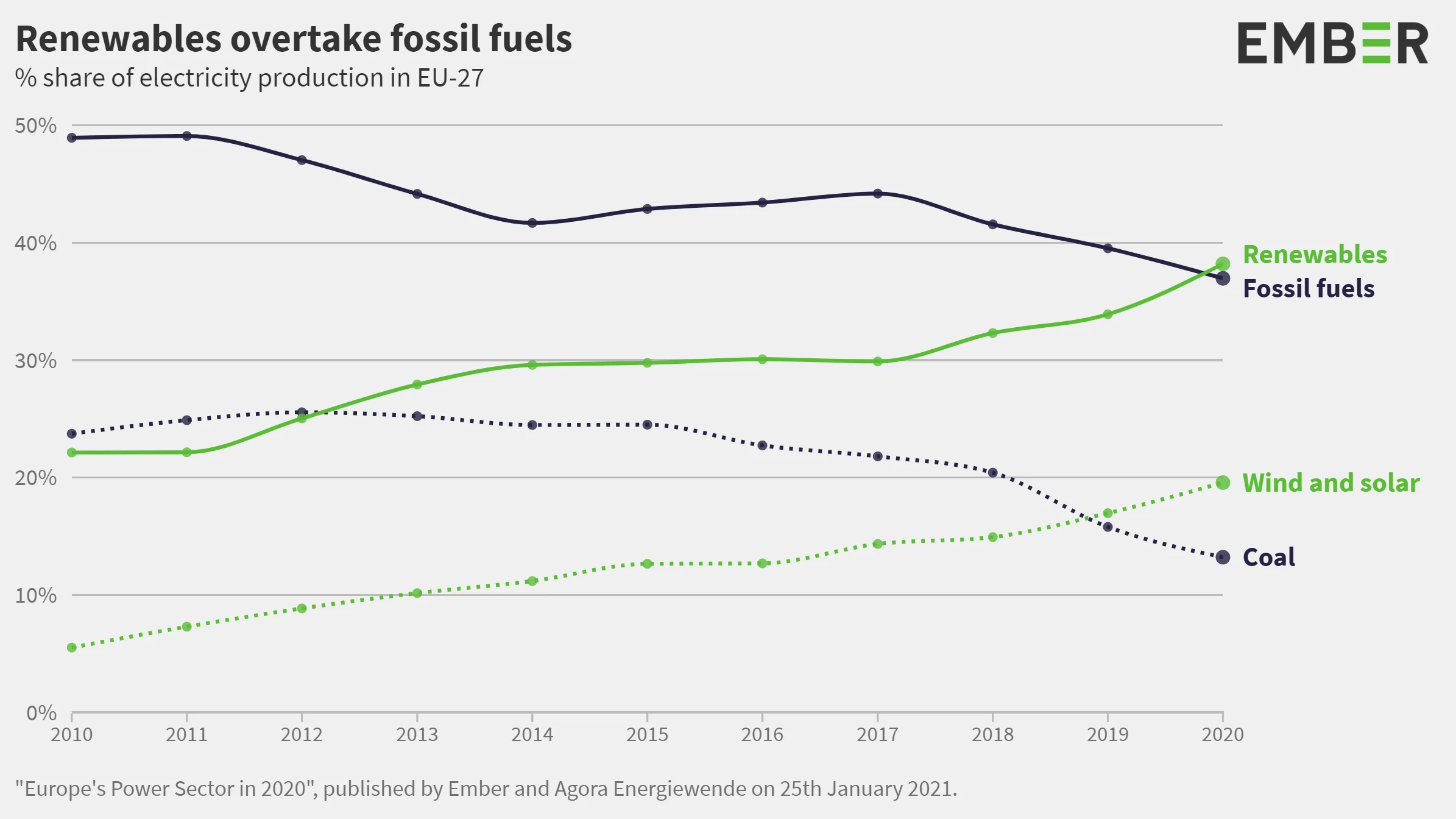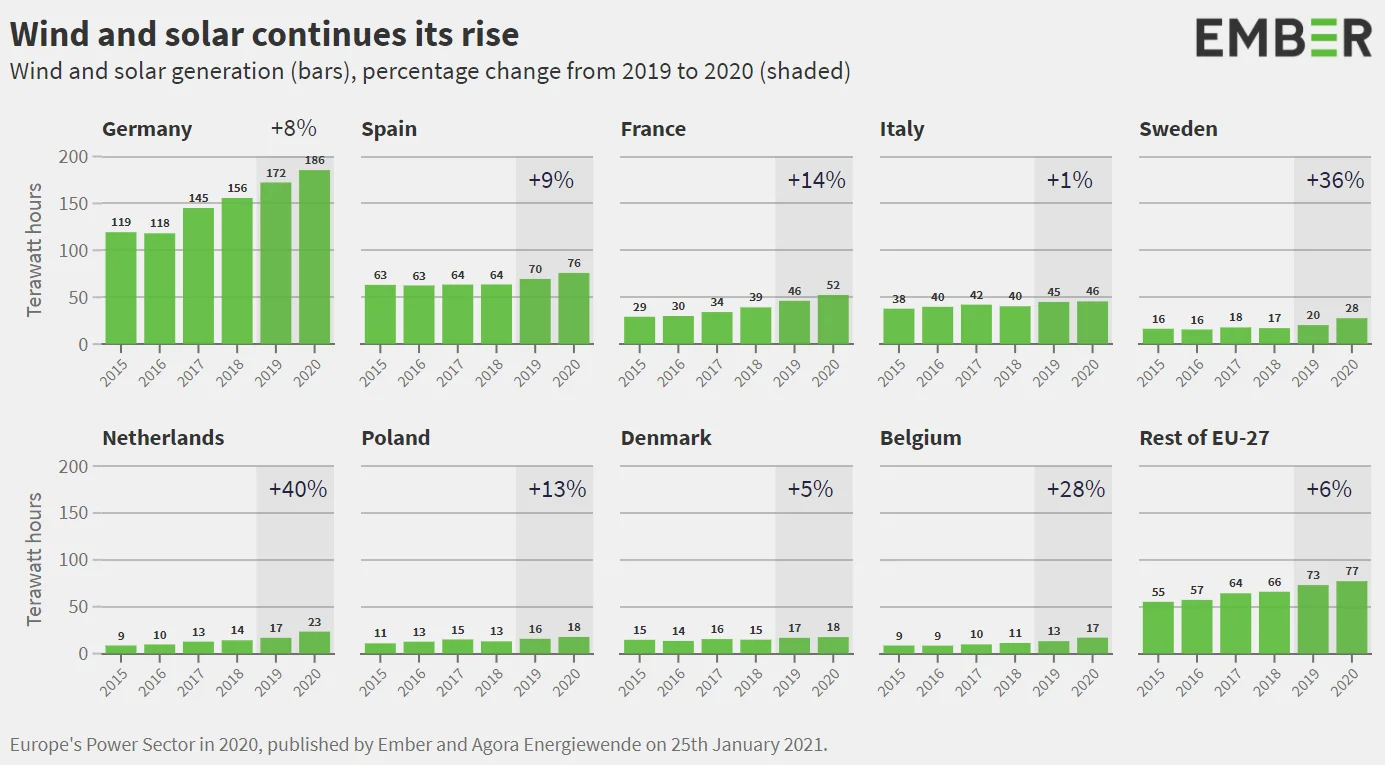
The EU's renewables outpaced fossil fuels for the first time in 2020
Wind and solar has been on a steady rise, while on the fossil fuel side, coal has been in freefall across the 27-member bloc.
Even COVID-19 couldn’t put a dent in the European Union’s rapid rise in renewable energy, it seems—in fact, even amidst the pandemic, renewables outpaced fossil fuel generation in the 27-member organization for the first time in 2020.
According to numbers released by energy think tank Ember, renewables rose to 38 per cent of the EU’s power mix in 2020, narrowly passing fossil-fired generation as it continued a long-time fall down to 37 per cent.
“The rise in renewables was reassuringly robust despite the pandemic, and the fall in fossil-fired electricity could have been even more dramatic, had it not been for such a bounce-back in electricity demand and the worst year on record for nuclear generation,” the report reads.
Locally, Germany and Spain saw their renewables sector outpace fossil fuels for the first time. The U.K., which left the E.U. at the end of 2020, also crossed that threshold, while even nuclear-heavy France saw fossil fuels left behind by wind and solar alone.
It’s a stunning reversal for the continent, which just 10 years ago derived almost half of its power from fossil fuels, compared to only 22 per cent from renewable sources.

Image credit: Ember
That transition has been driven mostly by drastic growth in wind and solar power, which grew from 6 per cent to 20 per cent. Hydroelectric sources were more or less flat over the last decade, in the 10-13 per cent range. As of the end of 2020, fossil fuels made up at least half of generation in only six of the E.U.’s 27 member states.
On a country-by-country basis, Denmark leads the pack by a country mile, with its wind and solar generation tripling to 61 per cent over the last decade. Germany and Ireland actually more than tripled that sector over the same period, now accounting for about a third of the generation in those countries.
“Rapid growth in wind and solar has forced coal into decline but this is just the beginning,” Dave Jones, Ember’s senior energy analyst, said in the report. “Europe is relying on wind and solar to ensure not only coal is phased out by 2030, but also to phase out gas generation, replace closing nuclear power plants, and to meet rising electricity demand from electric cars, heat pumps and electrolysers.”
RISING RENEWABLES, FALLING FOSSIL FUELS
2020 managed to nudge renewables ahead of fossil fuels largely due to a 10 per cent rise in new wind and solar installations, which Ember says was “robust” in the face of the pandemic. Some countries outpaced that average considerably, with the Netherlands at 40 percent year-on-year. Even Poland, which still derives more than four fifths of its energy from fossil fuels, saw 13 per cent growth in its energy sector.

On the flipside, fossil fuels continued both their relative and their actual decline. Coal generation fell 20 per cent in 2020, and is half what it was even five years ago. On a per-country basis, coal fell in every country, even in Poland, famously a laggard for its heavy reliance on the resource for its own grid.
Natural gas didn’t see quite the same levels of decline, falling only 4 per cent during the pandemic. In fact, the report says, some of the coal generation in recent years was made up by expanding natural gas, such that it’s still 14 per cent higher than five years ago. In 2020, Greece, the Netherlands, and Poland even saw gas generation edge upward.
However, the authors of the report say that even with the rapid rise in wind and solar in 2020, with a potentially record year ahead in 2021, the EU-27 countries need to pick up the pace significantly to meet the bloc’s plan to slash emissions 55 per cent by 2030.
“Renewables overtaking fossils is an important milestone in Europe’s clean energy transition. However, let’s not be complacent. The European Green Deal—our response to the climate crisis—requires some 100 TWh of annual additions of renewables, a doubling of the deployment speed seen in 2020. Post-pandemic recovery programmes thus need to go hand-in-hand with accelerated climate action,” director of energy think tank Agora Energiewende, which collaborated with Ember on the report, said in a release.











